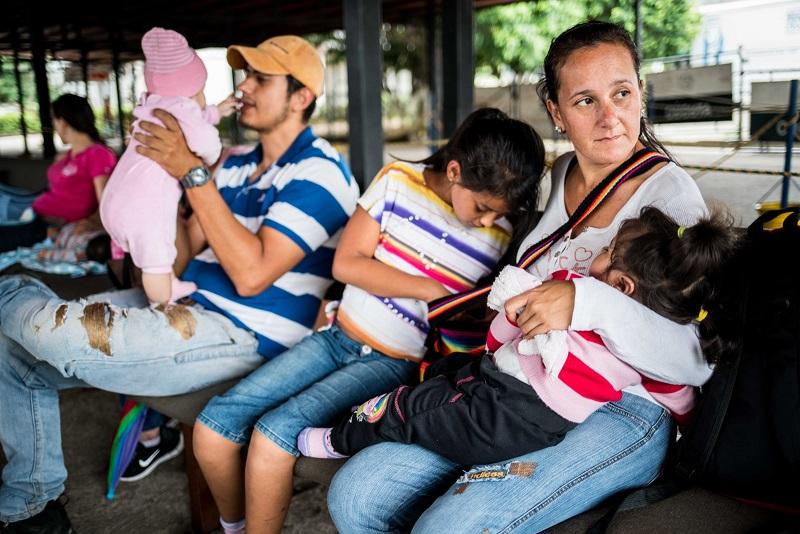Image courtesy of Human Rights Watch
It is well known that Venezuela is going through a humanitarian crisis. Beyond the political and economic implications of this sad outcome, the crisis reminds us that, in such scenarios, girls and women are often affected in a particularly severe way. It is no different when it comes to health.
On July 4, 2019, the UN High Commissioner for Human Rights, Michelle Bachelet, launched her report on Venezuela. Among many things, she found that:
“There is a lack of access to all types of contraceptives, with several cities facing a 100 percent shortage. This increases risk of contracting HIV and other sexually transmitted diseases, and of unwanted and adolescent pregnancies. The rate of adolescent pregnancies has increased by 65 percent since 2015. This impacts girls’ right to education, with pregnancy being the primary reason girls drop out of school. Due to restrictive legislation on abortion, some women and girls must resort to unsafe abortions. This has contributed to an increase in preventable maternal mortality, with an estimated 20 percent of maternal deaths reportedly linked to unsafe abortions. Lack of skilled birth attendants, medical supplies and hospital conditions has driven many women to give birth abroad.”

It is interesting to note that these problems —and their solutions— go beyond Venezuela, as thousands of pregnant women are making their way to neighboring countries, such as Colombia, Peru, Chile, Ecuador, Argentina, and Brazil (listed from those that have received more to less migrants, according to the International Organization for Migration). But sadly, migrants that leave Venezuela with unattended health needs find many difficulties upon arrival. In Colombia, for example, a recent report published by Profamilia and IPPF highlights the barriers in access to healthcare faced by migrants, either because of discrimination or misinformation. It also stresses that the needs of migrants regarding their sexual and reproductive health vary according to a number of factors —and the different layers that constitute their identities—, among which being documented or undocumented. This situation makes it clear that the struggle to broaden healthcare coverage must be accompanied by an effort to tailor interventions of public health to diverse population groups.
One of the layers that constitute a person’s identity is, of course, being a woman. No one can deny that Venezuelan men, elders and children are suffering. But no one can deny either that the crisis in Venezuela is impacting particularly girls and women’s health due to their ability to get pregnant. Bachelet did not hesitate in this point. She told an uncomfortable truth: girls and women are experiencing a series of violations to their human rights because of the lack of access to sexual and reproductive health services; this is the case of the shortage of contraceptives, restrictive legislation on pregnancy termination, and the lack of skilled birth attendants, all of which were mentioned by Bachelet. The consequence is the aggravation of health issues that can actually be prevented.
In the end, the humanitarian crisis in Venezuela reminds us that no crisis impacts everyone in the same way. Unfortunately, it is no surprise that women should be in the front line.



